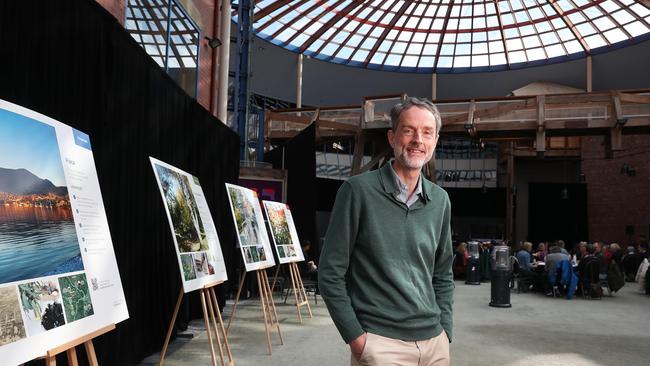Albanese under fire for ‘tin-eared’ appointment of UTAS VC Rufus Black to urban policy body
An Albanese government pick for its Urban Policy Forum, charged with revitalising Australia’s cities, has met with bewilderment and outrage but also praise, creating controversy for the newly formed think-tank.

An Albanese government pick for its Urban Policy Forum, charged with revitalising Australia’s cities, has met with bewilderment and outrage, but also praise, creating controversy for the newly formed think-tank.
University of Tasmania Vice-Chancellor Rufus Black is one of 12 members chosen for the new national forum, tasked with developing “the first comprehensive national urban policy in a decade”.
His selection has raised hackles in Hobart, where he is pushing highly contentious plans to relocate the city’s UTAS campus to CBD buildings and develop the current site for housing.
Those opposed to the move, which has sparked a parliamentary inquiry into UTAS governance and fuelled discontent among staff and students, said Professor Black was qualified in how not to conduct urban policy.
Save UTAS Campus Committee co-chair, lawyer Michael Foster, said no one “knowing anything about Tasmania” would select Professor Black for the forum.
“His leadership is under question,” Mr Foster said. “It’s been challenged in the Legislative Council inquiry by days and days of public evidence. Leaked internal university documents show that the staff have no confidence in him, and the students certainly have no confidence in him.
“He’s in conflict with the Hobart City Council, which has asked him to stop this relocation project. He’s in conflict with the Hobart community, which in a plebiscite last year voted 74 per cent against his project.
“His pet project is paralysed and he has withdrawn his application for rezoning (of the existing Sandy Bay campus for housing). His approach to urban development has been an unmitigated disaster by any assessment.”
UTAS emeritus distinguished professor Jeff Malpas said Professor Black’s appointment was “tin-eared”. “(Professor) Black has no real credentials to advise on this matter, and the manner in which he has handled the UTAS move seems indicative of … a refusal to attend to community views or concerns,” Professor Malpas said.
Professor Black did not directly respond to the criticisms. “Getting urban policy right is a vital part of creating a sustainable future for Australia,” he said. “I’m delighted to have the opportunity to make a contribution to this important national advisory body.”
Professor Black has no qualifications in urban policy. However, supporters argue he has overseen comparatively uncontentious and successful UTAS relocations in Burnie and Launceston.
An architect in those projects, John Wardle, said Professor Black was “eminently suited” to the forum. “Rufus is a particularly bright mind,” Mr Wardle said.
“He has a strong interest in both the macro level of urban regeneration, and the power of what can be done in our cities. But also he has an extraordinary capacity for detail and design resolution of projects within the urban realm.
“I know there’s a lot of mixed feeling in Hobart, but the worth of the man is very evident in those projects in the north of the state.”
Infrastructure Minister Catherine King defended Professor Black’s appointment. “(He) has extensive experience in public policy, which will make a valuable contribution to Australian government work, particularly on issues of sustainability and innovation,” Ms King said.
Professor Black is a former partner in McKinsey & Company, but his CV says he was also a Rhodes Scholar and lists multiple degrees – in law, politics, economics, ethics and theology.
The other 11 Urban Policy Forum members have qualifications or experience directly focused on urban policy, planning, architecture, local government, infrastructure, sustainable buildings or property. Ms King said none would be paid.




To join the conversation, please log in. Don't have an account? Register
Join the conversation, you are commenting as Logout